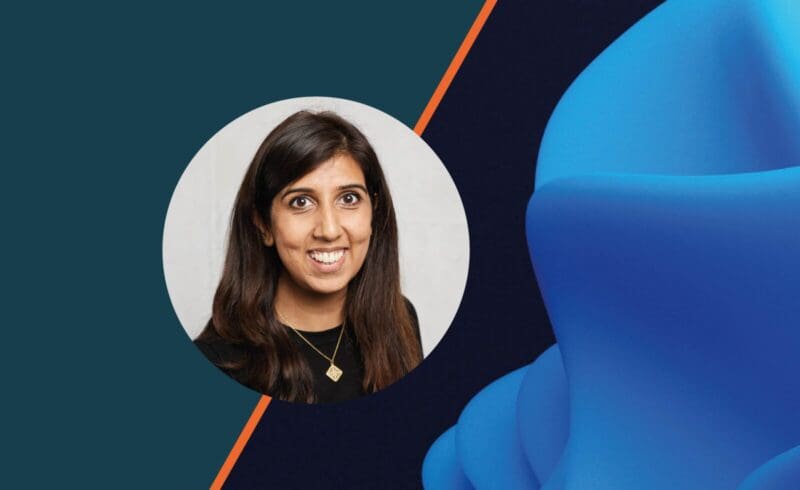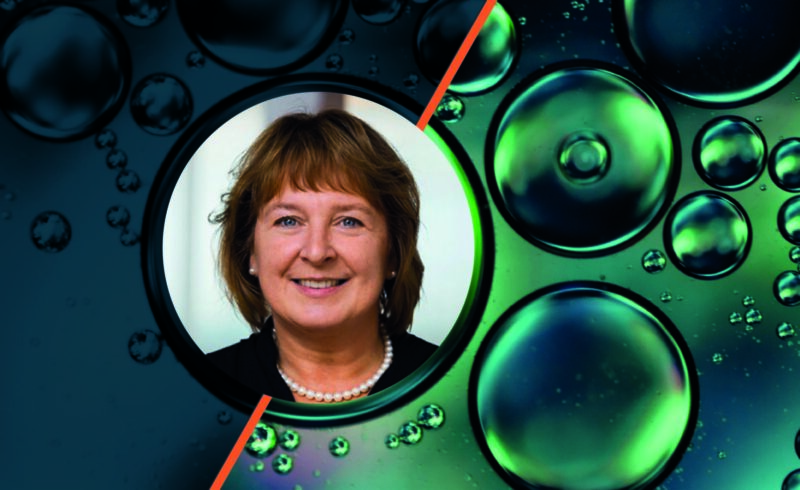For International Women's Day, we explored how to overcome the challenges faced when recruiting and retaining women to achieve gender parity.
As part of our focus on International Women’s Day this year, we interviewed women leaders across our three core markets to learn about their diverse career journeys, and to ask them how organisations can attract and retain more talented women into senior, executive and board-level roles. Whilst some of the insights shared were compiled into our 2024 International Women’s Day report, we wanted to use our platform to share all of the invaluable insights we heard through these interviews.
In this blog series, we are putting the spotlight on each of the women we spoke to who shared their insights and expertise. This article shares the conversation Katie Dunbar, an Associate Partner in commodities for EMEA at Proco Group, and Alex Patrick, Chief People Officer at Proco Group, had with Hannah Rizki, Global Head of Coffee Research at ED&F Man.
What impact, if any, has being a woman had on your career?
I’m very aware of my privilege, in that here in the UK I have a supportive network round me – a supportive partner, parents that pushed me to achieve academically and provided the motivation to pursue working in whichever field I wanted to, no matter how niche. However, I feel if I had married early in life and had the responsibility of children, I think my career journey to where I am today might have taken far longer and much more challenging. I think as a woman in this industry and environment, you sometimes have to work just a little harder to show, as a female, you are capable and can adapt to fit a generally high stress environment, lacking compassion!
What are you views of women working in the trading landscape?
"I’ve seen the trading landscape change a lot over the last 10 years and mostly for the better – we’re starting to see younger profiles of talent from varied backgrounds coming through into more client facing and decision-making positions, albeit at a slower rate than some other industries. Our industry is still exceptionally high in terms of male to female ratios across trading and research."
However, I do feel that the real value of women and the skills we bring is still waiting to be understood and implemented into senior management. If you look at executive and senior leadership teams, you still see the more “old school” archetypes, and they will most likely still be male dominated – although becoming more progressive. In my experience, women tend to be more detailed focused, are better able to prioritise and bring an element of compassion to assessing business and trading risks.
To be taken seriously in the trading environment you need to prove yourself. Quite often you find yourself speaking to a room of men, and you can become conscious of that which in turn holds many women back from expressing their personalities. In most of my calls and meetings I am sometimes the only woman. I hadn’t really noticed this as it’s been like this since I started working in commodities over 12 years ago, and wasn’t until my intern, also a woman, pointed it out to me and asked if I felt uncomfortable as a result! It’s so normalised that I hadn’t noticed it for all these years and a personality trait I had inherently developed was to become less self-conscious and more resilient in testosterone dominated settings.
Trading is becoming more accessible and progressive, for example, homophobia is something that’s really been dismantled and unacceptable now across the trading floors. There would have been a time where people would not risk identifying their true selves be it their ethnicity, religion or their sexuality, but today that feels all very different. It may well be the rise of the new generation entering the workforce that have higher levels of empathy, from more diverse backgrounds and less money focused! Even though they’re working in highly paid roles… they’re more willing to work as a team rather than individuals.
Having said this I still feel it is not possible for a woman to “have it all” that work in many industries without the right support network. I don’t have children – but if I did, I don’t believe I could be as successful in my current role with young kids, and as women chose to have children later in life as they’ve progressed in their careers several senior and executive roles in trading and research do not have part-time or flexible working hours, it’s just the nature of the industry. Childcare policies, and returning to work after a long break, shared paternal leave is not something that has really been considered in trading – a senior male trader taking 9 months off work to raise would be rare. After having children, I’ve noticed that many women find it hard to return back to work on a full-time basis due to the long hours that are required alongside long-haul travel to commodity supplying origins, meeting industry clients attending conferences etc.
We had a female senior trader with two young children; she was able to excel in both her job and raising her young children as she had a personal network and setup in place that made this possible. Her husband worked from home, so could do a lot of the childcare duties- and a full-time nanny helped!
What’s causing some of the difficulties in rebalancing this experience?
When hiring for a Soft & Ags trader, we will mostly likely only receive applicants from males perhaps because of the industry still being seen as male dominant from the outside. It would be refreshing to receive applications from female candidates that we could interview, but it’s hard to find any that fit the standard criteria we’re looking for, e.g. they need a commodities background. To overcome this, we need to broaden the search criteria, for example looking for someone who has programming experience or a background in science, which would likely be a smart, curious individual with skills that could be transferrable into commodities. We see that females across other science and STEM fields have been increasing in presence and authority at a much faster rate than in our commodity industry, with the work that governments globally have done to encourage females into the STEM fields is now paying dividends.
I think moving forward we will need some positive discrimination, for example, putting a focus on interviewing women in case where they might not have applied for these roles.
Historically, business always look for the people who are most talented and skilled, who can walk in and start doing the role right away. Instead, I’m looking for people who are curious, determined to learn and to improve, and wanting to grow and succeed. That’s how you bring in different types of people.
What’s driven success in your career?
One of the things that has driven my career and success is having great managers, of which most have been men that identified my strengths in analysis and in some way saw the gap in female representation and encouraged me to take on more presentations to and discussions with clients they were able to push me and guide me to build on my strengths giving me the time to learn from them.
Importantly, I was hired into my first role in the commodities sector (as a research analyst) by a woman in a very senior leadership position, she had been in the commodities sector for a long time and seen as a bit of a trailblazer. It takes someone vocal like this to have real impact, very confident and super resilient. Because I had her as an early role model and a source of support as I was beginning my career in commodities, that was well respected and gave me the freedom to develop my confidence and explore wider areas in the industry, I feel I’ve been able to get to where I am today.
What has driven some of the positive changes internally?
We had a mentorship scheme put in place where men would mentor a woman in the workplace.
Of all the beneficial outcomes, one of the most important was that the men themselves became more conscious of how women were being treated. They, through their mentee, were seeing how people were talking to them differently, using a different tone of voice, and this started to change perspective.
For example, there might be a woman who comes into the business without the “thick skin” persona, be less vocal and might get shut down by a male counterpart. The male mentor would see this, and it would change their perceptions of how women are being treated. This then starts to filter down to the next generation – you can feel it, already there is more openness, more compassion.
What advice would you give to anyone trying to enact change in their organisation?
"I was a pest to senior management! I used to send a breakdown of the senior leadership at other organisations to our senior leadership and say, “Women represent 35% of their senior leadership team, we have zero – what are you doing to solve this?” Of course, you need to be constructive, but be proactive and suggest change as this is what sparks people to act."
There was one woman in China that, due to a change in her personal situation, pushed for a more flexible around her working pattern. It was granted and now it’s something we’re looking to do more broadly across the business.
We started to focus on monthly communications that highlight the positive impact and changes across the organisation. We also have a women’s network set up, which contain 6 individuals from across the business. We speak three times per month and the agenda changes based on what’s been happening – sometimes it’s as simple as creating a space to be able to share experience and take advice from our female peers.
–
We’d like to extend a big thank you to Hannah for sharing her expertise and insights with us.
Read the International Women’s Day report
Click the button below to read our full International Women’s Day report, which highlights the current state of play across our three core markets and shares how to attract and retain talented women into senior, executive and board-level roles.
Katie Dunbar
Associate Partner | Commodities | EMEA
Katie leads our EMEA dry bulk executive search practice, executing mandates for trading and analysis roles in Agriculture, Softs and Metals.
She has 9 years’ experience partnering with a wide range of clients from start-ups to FTSE 100 companies across a variety of sectors, including commodities, shipping and procurement.
Katie has curated a consultative style, ensuring reliable partnerships with some of the most reputable firms, and close relationships with the best talent in the market, enabling consistent and swift delivery on tough projects.
T: +44 12 7364 8080 E: katie.dunbar@weareprocogroup.com





